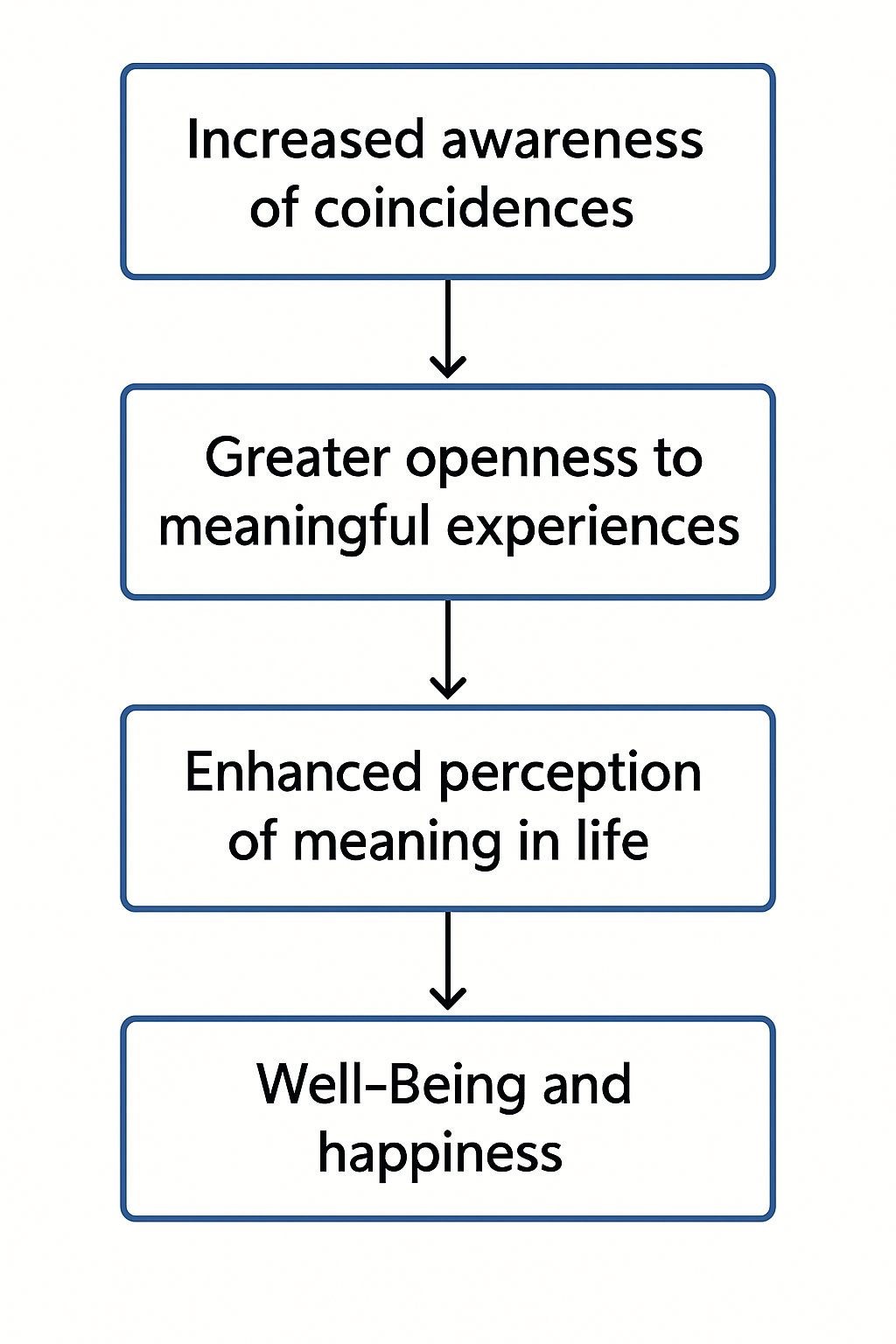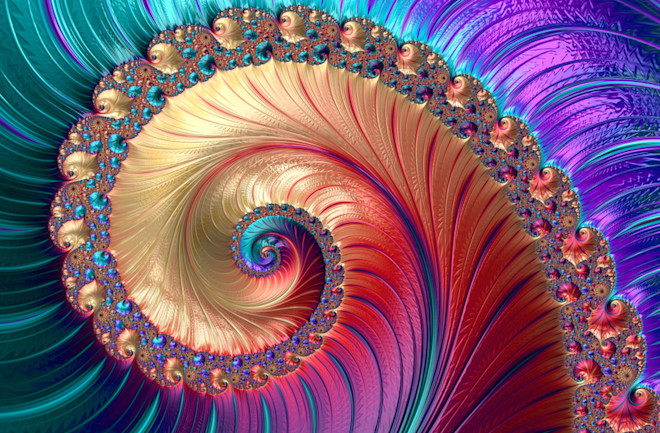Exploring synchronicity through science, story, and soul
Have you ever had a moment that felt like life was winking at you? Maybe you thought of someone just before they called—or stumbled on the exact book you needed at the exact right time. Psychiatrist Bernard Beitman, MD, believes those moments matter more than we think.
Dr. Beitman is a pioneer in the scientific study of synchronicity—the experience of meaningful coincidence. He writes regularly for Psychology Today, maintains a website and research community at coincider.com, and recently spoke to the integrative psychiatry fellowship students at Dr. Andrew Weil’s Center for Integrative Medicine at the University of Arizona. His research focuses not just on noticing these curious events, but on understanding how they can support a more meaningful—and even happier—life.
In one of his recent academic papers, Beitman offers a simple but powerful model. He suggests that when we become more aware of synchronicities, we naturally become more open to meaningful experiences. That, in turn, increases our sense of life purpose and emotional well-being. Here’s a visual summary of his flow:
Increased awareness → Greater openness → More meaning → Improved well-being

This isn’t just wishful thinking. Beitman has developed scales to help measure individual differences in coincidence sensitivity—like the WEIRD Scale (Which Events Really Define you?) and other tools for understanding synchronicity as a psychological variable. He encourages us to pay attention to these “acausal connections”—because what you notice can shape how you feel.
This concept traces back to Carl Jung, the Swiss psychiatrist who first coined the word synchronicity in the 20th century. One of Jung’s most famous synchronistic moments happened during a session with a patient who had been emotionally shut down. She was telling him about a dream involving a golden scarab. Just then, Jung heard a tapping at the window—when he opened it, a beetle remarkably similar to a scarab flew into the room. For Jung, this rare event cracked open the therapy. More than coincidence, it felt like a symbolic bridge between the inner and outer world—a message from the unconscious, made visible.
Even small synchronicities can feel like the universe whispering in your ear. For me, one sweet example is that my best friend and I were born on the same day. Not just in the same month or year—but the exact same day. We didn’t meet until adulthood, but when we did, it felt like we had always known each other. Is it a coincidence? Maybe. But it feels like more than that. It feels like a gift.
When we open our minds and hearts to synchronicity, we become more present. We begin to see meaning where we once saw randomness. And that can change everything.
Postscript: Our Scores and What They Reveal
After writing this, I took the Weird Coincidence Scale myself and scored a 43—solidly in the ultra-sensitive range. My partner, by contrast, scored a 30, placing him in the average range. That difference intrigued me, especially since we both score quite high on the “Openness to Experience” trait of the Big Five personality model. So why the disparity?
I believe the answer lies in another layer of personality: the deeper psychological needs that shape how we interpret the world. My partner is a Body Type on the Enneagram—his core need centers on agency, the ability to act and feel effective in the world. I’m a Head Type, and my deepest drive is for certainty and safety, often sought through meaning-making.
For me, noticing synchronicities—the subtle patterns, the chance encounters, the perfect-timing moments—feels like gathering breadcrumbs that help me navigate life. It’s a way of sensing that I’m on the right path, even when I can’t see where it leads. Meaning-making soothes my mind and opens my heart. It gives me a sense of trust in something larger than myself.
So while my partner and I both value insight, it makes sense that I might be more tuned in to meaningful coincidence. For me, it’s not just interesting—it’s reassuring.
Weird Coincidence Scale
Please rate the following statements based on your experience:
For each statement, give the following rating:
1 = Never
2 = Seldom
3 = Occasionally
4 = Often
5 = Very Frequently
1. I think of calling someone, only to have that person unexpectedly call me.
2. When my phone rings, I know who’s calling (without checking my cell phone screen or using personalized ring tones).
3. I think of a question only to have it answered by external media (i.e., radio, TV, people) before I can ask it.
4. I think of an idea and hear or see it on the radio, TV, or Internet.
5. I think of someone and that person unexpectedly drops by my house or office or passes me in the hall or street.
6. I run into a friend in an out-of-the-way place.
7. I experience strong emotions or physical sensations that were simultaneously experienced at a distance by someone I love.
8. I need something and the need is met without my having to do anything.
9. I advance in my work/career/education through being at the right place at the right time.
10. I am introduced to people who unexpectedly further my work/career/education.
11. Meaningful coincidence helps determine my educational path.
12. After experiencing meaningful coincidence, I analyze the meaning of my experience.
Scoring
Add up your scores for each statement. Then, use the following chart to determine your coincidence sensitivity:
Above 43: Ultra-sensitive
39–43: Very sensitive
35–38: Sensitive
27–34: Average
23–26: Insensitive
22–19: Very insensitive
Below 19: Ultra-insensitive
If you scored in the sensitive to ultra-sensitive range, you are very likely to be regularly using coincidences for decision making and for psychological change. This scale can help you strengthen your already active use of coincidences.
If you scored low, you may be in a certain routine or pattern of living in which the conditions are not ripe for coincidences. Or you may be experiencing only one certain kind of coincidence. This tool can help you to expand the range of coincidences available to you if you remain alert, open, and seeking.

